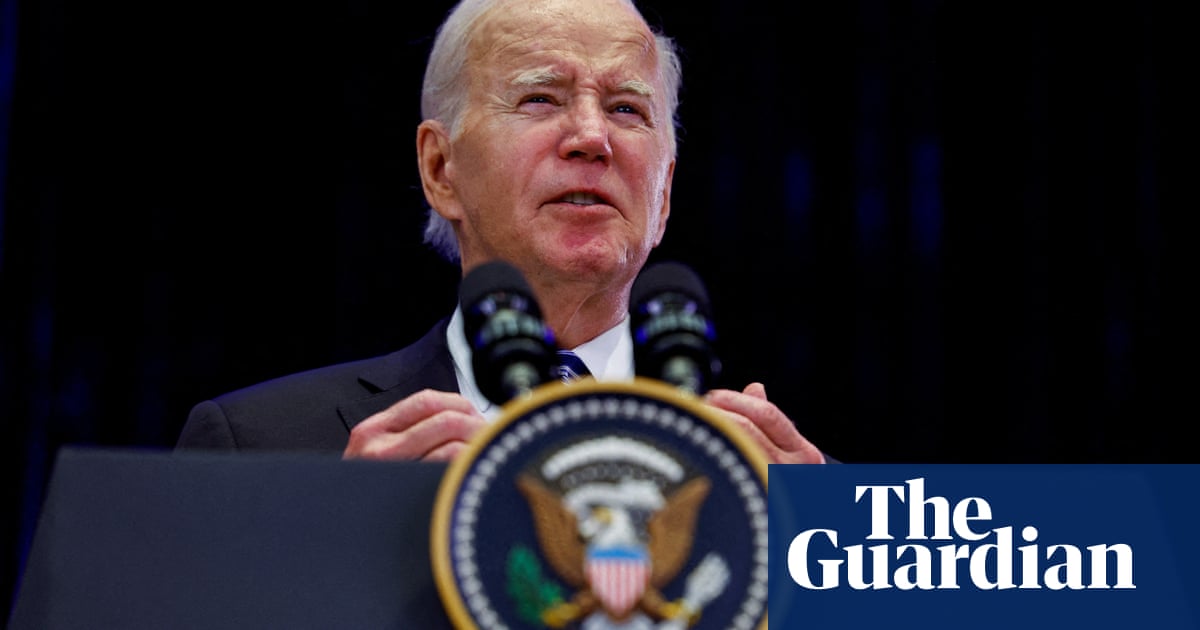
President Biden’s response to the murderous attack by Hamas on Israeli towns, villages and kibbutzim that claimed more than 1,200 Israeli lives, the majority of them civilians, was one of the most heartfelt expressions of support for Israel by a US president for a very long time. His speech on 10 October emphasised that Washington would not confine its backing for the Jewish state to words, and would immediately translate those words into tangible assistance. But Biden’s pledge of “surging” support, including sending aircraft carriers “to deter hostile actions against Israel” - is not without caveats, to which Israel should pay careful heed. Over the weekend, Biden wisely warned Israel against occupying Gaza, and expressed his support for opening a humanitarian corridor to alleviate the humanitarian catastrophe that is already taking place.
It is no secret that US-Israel relations have been strained since Benjamin Netanyahu returned to power at the end of last year. The US administration has been openly critical of the crass attempt to weaken the country’s judiciary, and with it Israel’s democratic system, by the newly formed, most rightwing government coalition in its history. Indirectly supporting the hundreds of thousands of Israelis who have been regularly taking to the streets in defence of their democracy, Biden linked US friendship with Israel to the preservation of that democracy, and asserted that: “The genius of American democracy and Israeli democracy is that they are both built on strong institutions, on checks and balances, on an independent judiciary.”
To underline his disapproval of Israel’s government, which includes criticism of its expansion of settlements in the occupied Palestinian territories, Biden has been holding back on inviting Netanyahu to Washington. By depriving Netanyahu, who has always seen himself as wielding influence in corridors of power in the US, of what is probably the most coveted foreign trip for any Israeli prime minister, Biden has made what some politicians in Israel regard as a meddlesome intervention in its internal politics. Earlier this year, this led a member of the prime minister’s cabinet, Amichai Chikli, with Netanyahu’s tacit approval, to demand that the US “mind your own business”.
Well, Israel is indeed the US’s business, to the extent that Washington provides it with military and other aid to the tune of $3.8bn every year, supplying it with the most sophisticated weapons and backing it diplomatically in international forums even on occasions when it might disagree with Israel’s policies, or even actions that harm US interests. Following Hamas’s attack on Israel and the dangerous posturing of Hezbollah on its northern border, the US has come to Israel’s support swiftly.
As soon as the scale of the disaster that had befallen Israel became clear, Biden immediately moved to deliver critically needed munitions and military equipment to reinforce his ally’s capability. He dispatched the aircraft carrier Gerald R Ford, along with a missile cruiser and four missile destroyers, to the region, signalling to Iran and Hezbollah that attacking Israel would lead to a confrontation with the US. Washington is treating the situation as if Israel were a full member of Nato, seeing the attacks on its close Middle Eastern ally as a declaration of war on the US. Just days after Hamas’s attack, the US secretary of state, Antony Blinken, flew to Israel for talks with Netanyahu, and then on to Jordan, Qatar, Saudi Arabia, UAE and Egypt, in an effort stop the conflict from worsening. He was followed by the defence secretary, Lloyd Austin, to demonstrate to the world the unwavering support of the US for Israel. Another thing fuelling US anger is that Hamas have killed and taken hostage US citizens. This inevitably involves the US more in this round of violence than in previous outbreaks.
It was only recently that Biden’s frosty attitude to Israel thawed somewhat when he agreed to meet Netanyahu – albeit not in the White House as the latter would have loved, but on the sidelines of the UN general assembly in New York – and granted Israel membership of his country’s visa waiver programme after a very long wait. These gestures didn’t take place in isolation, but have much to do with the trilateral engagement between the US, Saudi Arabia and Israel. If this is concluded – although it is likely to be delayed as a consequence of the current conflagration – it will result in the Saudis normalising relations with Israel in return for a formal defence treaty with the US and assistance in developing a civilian nuclear programme.
Netanyahu, who is facing a corruption trial and weekly mass protests against his coalition’s attacks on the judiciary, hopes that a military victory might save his job. However, this would require his government to make concessions to the Palestinians that, considering the nature of his coalition, are unlikely to be forthcoming. For Biden, who will soon be campaigning for re-election and probably against a familiar and unpredictable rival, normalisation between two of the big regional powers that are crucial US allies can only enhance the president’s credibility among US voters – especially as the US tries to claw its way to relevance in the region and contain the increasing influence of China and Russia. Moreover, a quick resolution to the war in Gaza with minimum casualties is important for domestic reasons; for the longer it continues, and with mounting Palestinian casualties, the bigger the danger of unwarranted antisemitic incidents in the US.
Biden’s support for Israel is genuine, but it is far from an approval of every action of its government. In his speech, Biden committed the might of the US to the support, and if necessary the defence, of Israel; but he has made it clear that his approach derives from the fact that both countries share common democratic values. In other words, the attack on the checks and balances in Israel’s system of governance must stop. And, significantly, he has made a distinction between recognising Israel’s right to destroy Hamas’s military capability, and any licence to harm civilians in Gaza in contravention of international law. “Terrorists purposefully target civilians, kill them,” Biden said. “We uphold the law of war. It matters. There’s a difference.” It remains to be seen whether Washington will hold Israel to this standard of behaviour.
Nevertheless, the real test for US intentions in the region, and also for the security and welfare of its allies, including and especially Israel, will be in the immediate aftermath of the war, when it must put its political and economic weight behind a recovery plan for Gaza. That plan will need to improve the living conditions of all Palestinians, and, most crucially, initiate a concerted effort to seek a resolution to the chronic Israeli-Palestinian conflict, one that guarantees everyone’s human, political and civil rights.
Yossi Mekelberg is professor of international relations and associate fellow of the Middle East and North Africa programme at Chatham House











